On 18 June, let's recognize the need to counter discrimination, xenophobia and hate speech and let's call on all relevant actors, including States, to increase their efforts to address this phenomenon, in line with international human rights law.
Don't wanna be here? Send us removal request.
Text
Marking the 3rd International Day for Countering Hate Speech.
The 3rd International Day for Countering Hate Speech serves as a reminder of the ongoing need to address this issue. It coincides with the five-year mark since the launch of the United Nations Strategy and Plan of Action on Hate Speech, highlighting the ongoing commitment to this cause. Both online and offline, youth are at the forefront of efforts to combat hate speech. Their innovative approaches and willingness to confront difficult issues make them invaluable agents of change.
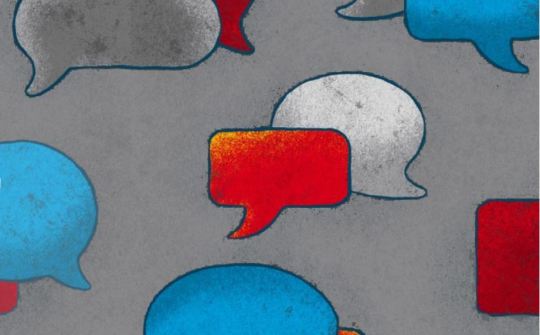
#intolerance#hatred#young people#agents of change#International Day for Countering Hate Speech#The Power of Youth for Countering and Addressing Hate Speech#harmonious coexistence#online hate
0 notes
Text
Engaging youth leaders and providing them with the resources and platforms they need.
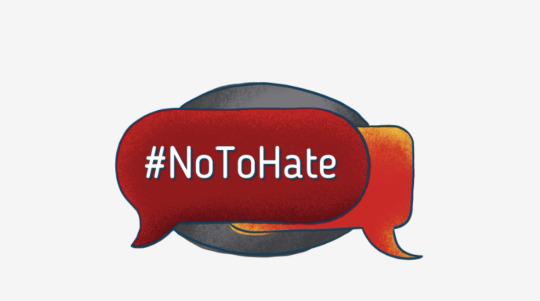
By engaging youth, we can harness their energy and creativity to foster more inclusive and tolerant societies. There are numerous examples of successful youth-led initiatives in this regard, showcasing the potential for positive change when young people are empowered to take action against hate speech. The impact of hate speech cuts across numerous UN areas of focus, from protecting human rights and preventing atrocities to sustaining peace, achieving gender equality and supporting children and youth
0 notes
Text
Investing in the Power of Youth for Countering and Addressing Hate Speech.
High-level event to mark the 3rd International Day for Countering Hate Speech highlighting the importance of investing in the power and voice of youth to counter hate speech.
This year will mark the 3rd International Day for Countering Hate Speech and five years since the launch of the UN Strategy and Plan of Action. To mark the International Day, the Permanent Mission of the Kingdom of Morocco to the United Nations and the United Nations Office of the Special Adviser on the Prevention of Genocide are organizing a High-level Event that would focus on the importance of engaging with youth in efforts to counter and address hate speech.
The Event would also focus on the importance of investing in the power and voice of youth to counter hate speech. Indeed, engaging with youth is a key component of the UN Strategy and Plan of Action on Hate Speech which stresses the role of education and that in the digital age, the UN should support a new generation of digital citizens, empowered to recognize, reject, and stand up to hate speech.
Objectives:
Commemorating the 3rd Anniversary of the International Day on Countering Hate Speech, to bring further attention to the importance of tackling hate speech, in all its forms and manifestations.
Highlighting the important role of youth in countering and addressing hate speech
Hearing from youth voices on their experience, concerns, and recommendations on what more needs to be done to tackling hate speech.
Opening Segment:
President of the General Assembly; Secretary General of the United Nations; Permanent Representative of the Kingdom of Morocco to the United Nations; United Nations Special Adviser on the Prevention of Genocide.
Related Sites and Documents
Website - International Day for Countering Hate Speech Concept note
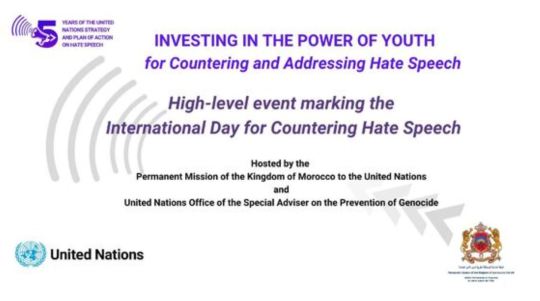
#High-level events#counter hate speech#counter discrimination#International Day for countering hate speech#Permanent mission of the kingdom of morocco to the un#office of the special adviser on the prevention of genocide#panel discussion#18 june#VOICE OF YOUTH#young people#UNHQ
0 notes
Text
The Power of Youth for Countering and Addressing Hate Speech.
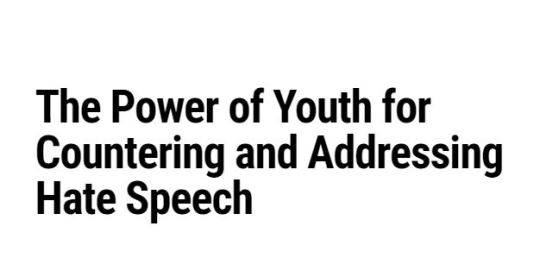
Empowering youth to combat hate speech is crucial in today's world, where they are not only the targets but also influential voices in their communities. With 1.2 billion young people globally, their role in recognizing, raising awareness, and countering hateful narratives cannot be overstated. As peers, they have significant sway over each other and can drive meaningful change by speaking out against hate speech.
#hateful narratives#harmonious coexistence#hate speech narratives#united nations#young people#counter discrimination#counter hate speech#notohate#International Day for Countering Hate Speech#18 june#campaign
0 notes
Text
We have the duty to invest in measures to promote tolerance, diversity and inclusivity, and to challenge hate speech in all its forms.
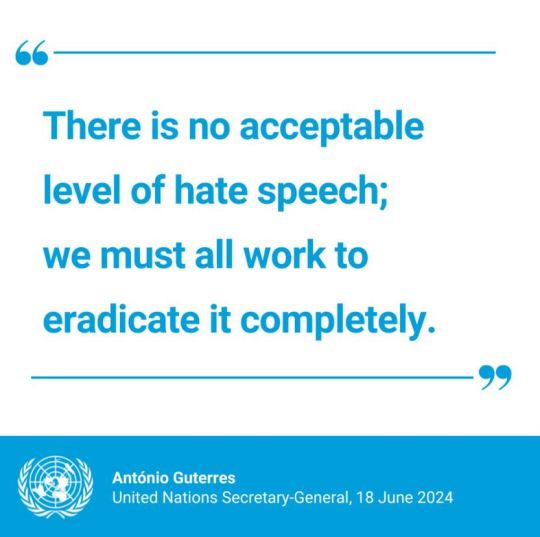
“There is no acceptable level of hate speech; we must all work to eradicate it completely.” – Mr. Antonio Guterres on Tuesday’s International Day for Countering Hate Speech.
#intolerance#hatred#18 june#united nations#hateful narratives#hate discourse#harmful content#online hate#cyber harassment#end hate speech#hate speech online#international community#International Day for Countering Hate Speech
0 notes
Text
Second International Day for Countering Hate Speech: “It Begins With Words and Each of Us: Effective Action to Counter Hate Speech”.
Today, the threat posed by hate speech progressively undermines tolerance, inclusion, and respect for diversity, which not only fuels violent extremism in fragile and conflict areas, but also further undermines social cohesion and political stability in countries across the world. No country is spared. This is also increasingly manifested through political extremism, including right-wing extremism. In fact, the use of dangerous, or hateful speech to disparage individuals and to promote violence against them is growing exponentially online, in parallel with the rise of social media use.
High-Level Panel Discussion.
0 notes
Text
Hate speech is a danger to everyone and fighting it is a job for everyone.
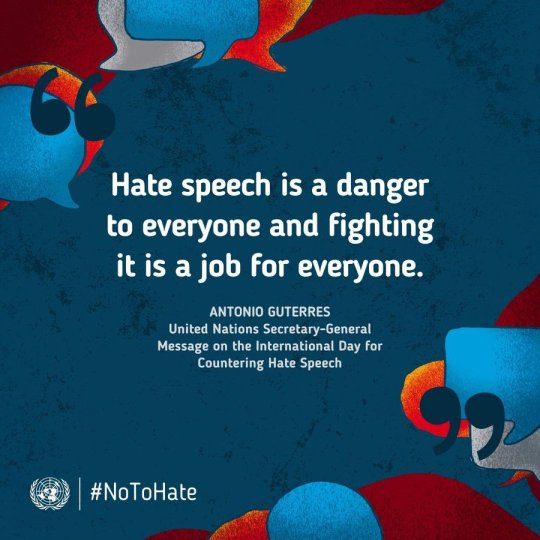
On this International Day for Countering Hate Speech and every day, let’s say "NO TO HATE".
#NoToHate#International Day for Countering Hate Speech#Statements#united nations secretary general#Quotes#end hate speech
0 notes
Text
What efforts are needed to address and counter hate speech more effectively?
A comprehensive response with a whole-of-society approach is essential, with the following vital areas of action to consider:
Establishing the need to combat hate speech as a matter of national and global priority at the highest political levels,
Addressing hate speech in the content of education programmes/curricula and pedagogical approaches at every level of formal, non-formal and informal education, from early childhood through higher education to lifelong learning,
Putting in place effective anti-discrimination policies and strategies,
Developing better reporting mechanisms at the local, national and global levels,
Coordinating improved responses with social media companies,
Encouraging further research on the nature and spread of hate speech and the effectiveness of the responses and mitigation measures implemented by various stakeholders, including in the education sector.
#Social and emotional learning (SEL)#practical tools and techniques#points of view#negative emotions#resolve conflicts#manage stress#hate speech#UNESCO#civic education
0 notes
Text
What does a comprehensive approach look like?
To effectively counter hate speech online and offline and foster a safe and inclusive environment free from all forms of hatred and discrimination, efforts made by educators in the classroom must be reflected in all aspects of school life, including policies, extracurricular activities, sports, and social and cultural events. Active engagement of teachers, administration, and parents is a critical success determinant.
The private sector has a role to play, too. Internet companies can contribute by devoting time and resources in risk assessment mechanisms as well as independent audits of the automated tools that enable the amplification of hate speech. They should consider involving victims, civil society and/or intergovernmental organisations in these processes and in the evaluation of the application of their terms of services. Investment in educational tools that enable users to recognise and respond to disinformation is also among the measures that could be taken to address hate speech.
0 notes
Text
How can teachers create an alternative sense of belonging?
To complement curricular interventions, a safe, caring, inclusive, and collaborative classroom climate is necessary. Hate can give a sense of purpose and belonging. It is, therefore, crucial to invest in building a sense of community in and out of schools and integrate missing perspectives in the education process.
Programmes that support global citizenship education and promote collaborative, culturally responsive and inclusive practices can help to develop the necessary knowledge and competence to embrace differences and engage respectfully in a diverse society. Social and emotional learning (SEL) provides practical tools and techniques that teachers can help use to foster a sense of belonging amongst learners. By using case studies and real-life scenarios to discuss controversial situations and different points of view, learners are able to manage stress and negative emotions, acknowledge their strengths and weaknesses, and resolve conflicts.
#Social and emotional learning (SEL)#practical tools and techniques#points of view#negative emotions#resolve conflicts#manage stress#hate speech#UNESCO#hate discourse#hatred
0 notes
Text
What are the ways to spot and counter hateful narratives within curricula?
One-sided narratives that fuel hate speech and justify exclusion can be found across different subjects and educational programmes. Discussing these narratives with school students and acknowledging their problematic nature is integral to the solution.
This includes facilitating uncomfortable conversations about social inequality and power dynamics, decoding and debunking stereotypes and prejudice, and addressing the trauma and stigmatization caused by violent pasts. Teaching and learning about these issues and revising and reviewing curricula and educational materials can sensitize learners to contemporary forms of discrimination and increase their understanding of the processes that lead societies to violence.
#hate speech narratives#hateful narratives#violence#social inequality#unesco#uncomfortable conversations
0 notes
Text
What’s the role of media and information literacy?
In the "attention economy", hate speech narratives are the ones that often seduce the most, offering an easily achievable sense of community and maximized reach of such messages. Learners need to be empowered to understand the mechanisms underpinning the functioning of media and digital platforms and spot the persuasive tactics commonly used to spread conspiracy theories and other forms of disinformation and harmful content. Evidence shows that developing media and information literacy skills makes them less prone to exclusionary and violent extremist ideas. Teachers, in turn, benefit from these discussions to better understand and reflect on learners' experiences from the digital world, where hateful content is virulent as never before.
0 notes
Text
Where do we draw the line between hate speech and free speech?
Hate speech violates the fundamental human rights of the people that are targeted. Opinions may offend, shock or disturb, but they cannot incite violence, hostility and discrimination. In and through education, learners discover how to draw the line between insults and hate speech, as well as understand the consequences and impact of their words and actions on other people. Discouraging the spread of hateful narratives doesn't impede learners' freedom of speech nor the expression of their opinions. On the contrary, education can help uphold this fundamental right by promoting respect, mutual understanding, and a shared sense of humanity.
0 notes
Text
What you need to know about the new guide on addressing hate speech through education?
How can countries worldwide tap into the power of education to counter hate speech online and offline? UNESCO and the United Nations Office on Genocide Prevention and the Responsibility to Protect (UNOSAPG) have jointly developed the first guide for policy-makers and teachers to explore educational responses to this phenomenon and give practical recommendations for strengthening education systems. The guide is part of the implementation of the UN Strategy and Plan of Action on Hate Speech. Here's a glimpse into some of the main ideas of this new tool.
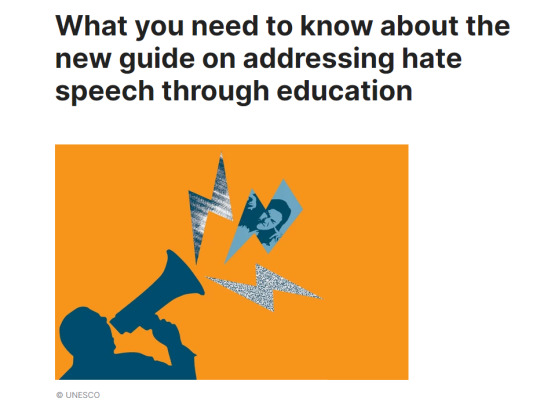
#hate speech online#hate discourse#Educate#Social and emotional learning (SEL)#practical tools and techniques#points of view#negative emotions#resolve conflicts#manage stress#hate speech#civic education#UNESCO
0 notes
Text
Learn how UNESCO is supporting educators today in countering hate speech among students.
Moving one step closer to safer, peaceful and inclusive societies starts with addressing Hate Speech in and out of school, online and offline.

#intolerance#counter discrimination#NoToHate#hatred#peaceful and inclusive societies#cyberbullying#cyber harassment#UNESCO#Campaign#out of school#in school#get educated#safer societies
0 notes
Text
Agenda Programme of the 2nd International Day of Countering Hate Speech.
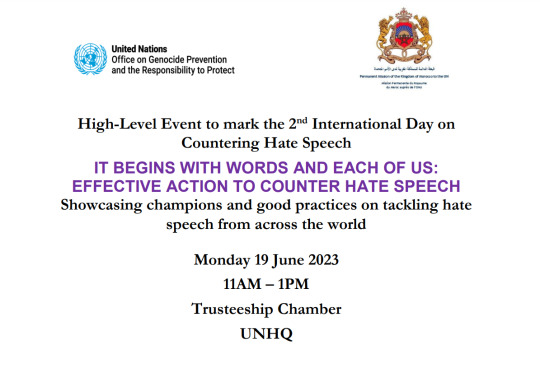
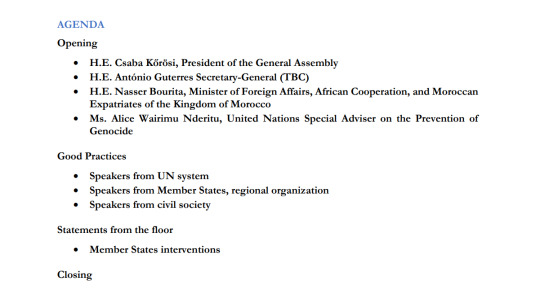
The United Nations Office on Genocide Prevention and the Responsibility to Protect (OSAPG) is the UN system wide focal point for hate speech, including coordinating implementation of the UN Strategy and Plan of Action on Hate Speech. The OSAPG provides support within the UN system, to Member States, regional organization and civil society in their efforts to combat hate speech, in line with the UN Strategy. For example, a key part of the implementation of the Strategy is through the development by UN Country Teams, Peacekeeping and Special Political Missions of context specific action plans to implement the global Strategy, in partnership with national stakeholders. To date over 20 UN field presences have developed and are implemented such action plan.
0 notes
Text
"It begins with worlds and each of us: Effective action to counter hate speech."
The objective of the high-level event is to showcase good practices that exist from within the UN system, from Member States, regional organizations, civil society and other relevant stakeholders to tackle hate speech. The good practices will emphasize efforts that deal not only with the impact and spread of hate but also its root causes and drivers. It is further aimed to take stock of some of the challenges and lesson learnt from these initiatives in order to enhance knowledge sharing and to strengthen our collective efforts to address the scourge of hate speech globally.
The high-level event will also feature the launch of a publication developed by OSAPG showcasing some of the good practices from within the UN system, in particular from UN field entities on countering and addressing hate speech.
#United Nations Field entities#United Nations Specialized Agencies#panel discussion#United Nations Trusteeship Council#International Day for Countering Hate Speech#conferences#OSAPG
0 notes